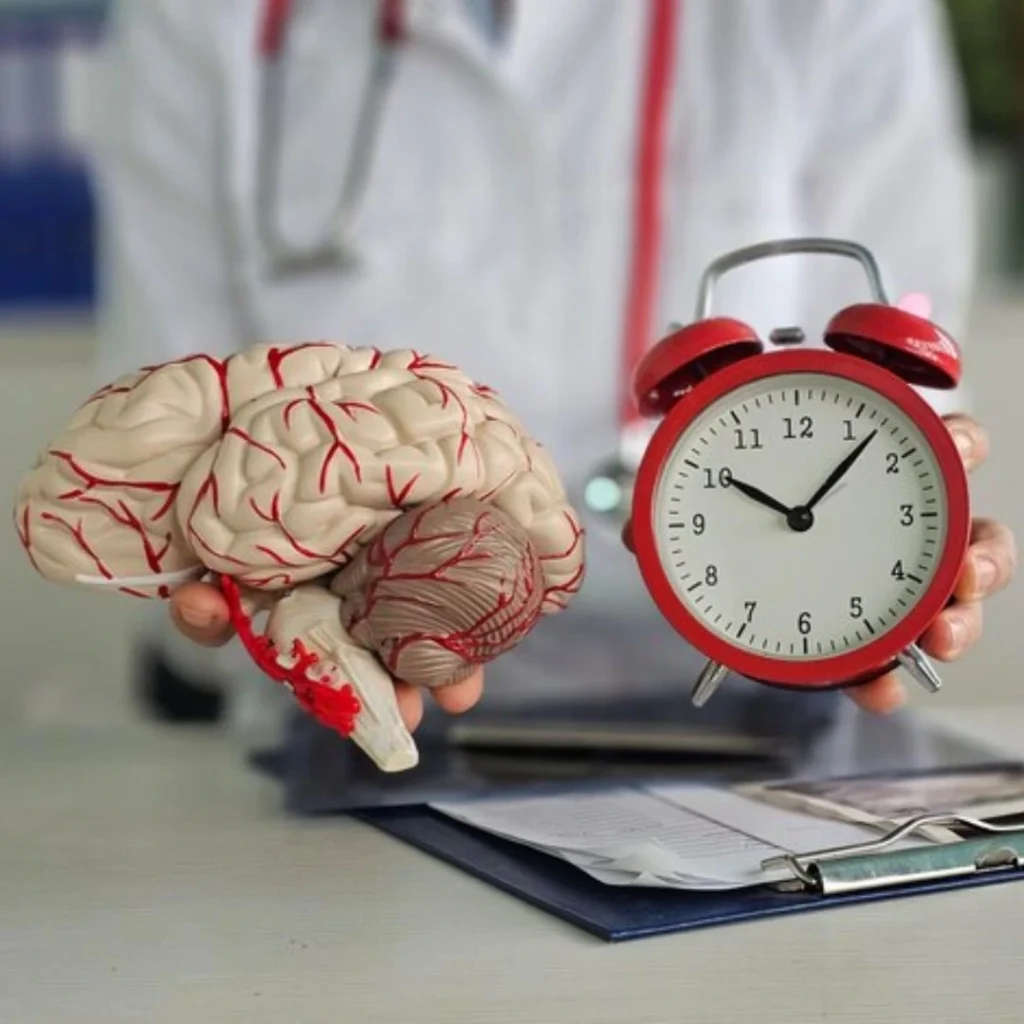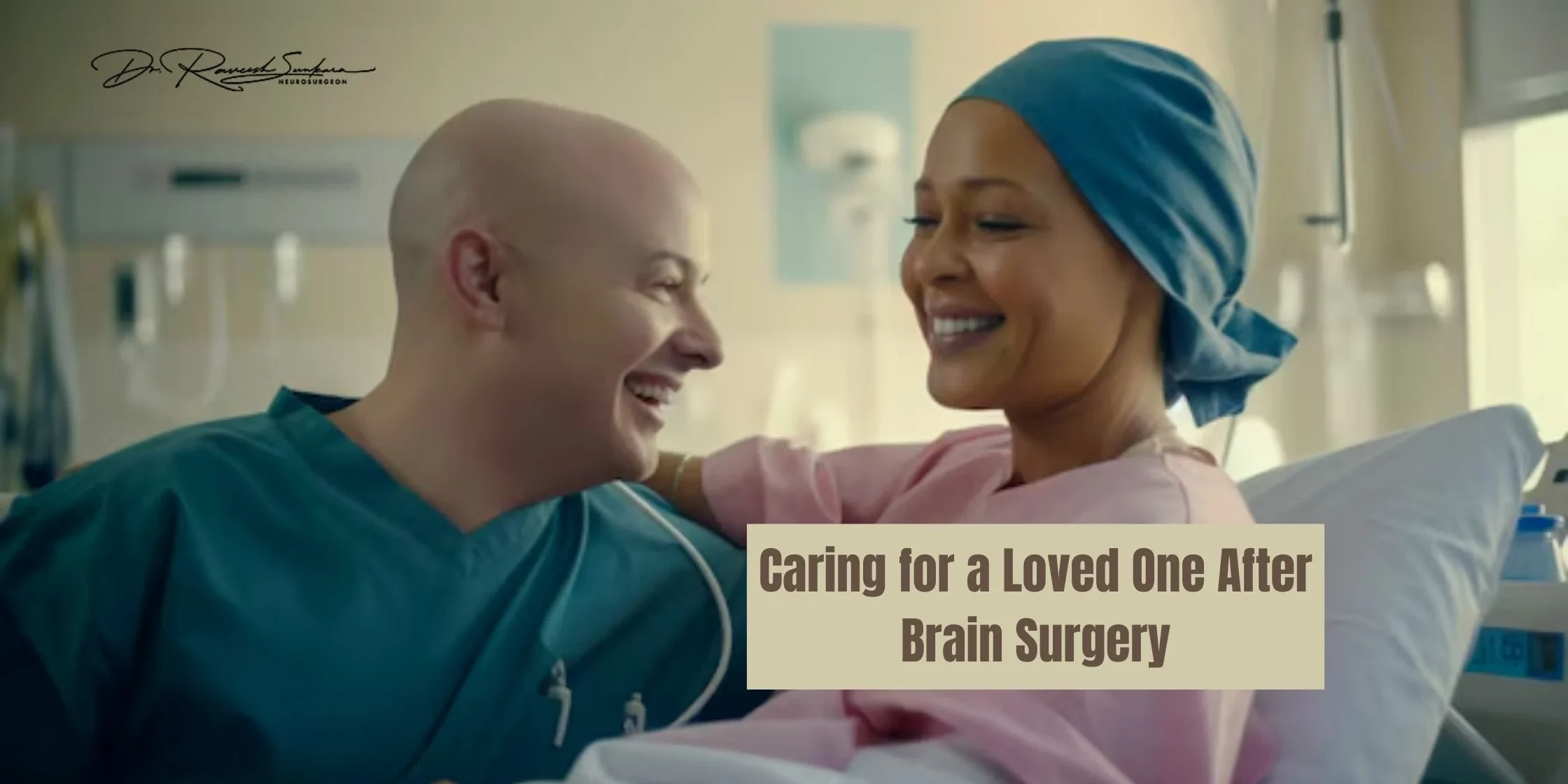Being there for a family member who has undergone brain surgery is such an emotional and physical journey. Recovery does not happen overnight; instead, it requires care, patience, and medical support to attain the dream outcome of getting back home. Assistance and encouragement in making this recovery as smooth as possible are what we bring to the best hospital for brain tumor in India i.e Dr. Raveesh Sunkara.
The Road to Recovery: What to Expect
Recovery varies quite a lot after brain surgery depending on the whole health of the patient and the condition that requires treatment; some find it simple, while others will face an uphill battle.
Post-Surgical brain tumor complications
Fatigue and Low Energy:
- Rest is the most important aspect of recovery. Patients feel tired, often even after simple chores. Encourage frequent breaks and a comfortable sleep pattern.
Cognitive Changes:
- There might be some temporary amnesia or attention-deficit issues. Mind stimulation could include puzzles, reading, or light conversations.
Physical Limitations:
- Weakness, poor balance, or difficulty walking might occur. Thus, physical therapy is miraculous for restoring mobility.
Changes in Mood and Emotion:
- Anxiety, mood swings, or even depression can develop as a result of surgery. But then, an atmosphere can ease the burdens of love and support.

Brain cancer recovery time
The time taken by different patients after undergoing the tumor recovery varies, although many patients typically start showing signs of recovery within 6-12 weeks’ time. Full recovery may extend for a longer period if complications arise or if it is a case of extensive surgery. Moreover, in the healing process, time, as well as physical and psychological effort, is needed. Also if you want to read about the Brain Tumor: What It Is, Causes, Symptoms, Treatment & Types go through it.
Duties of a Caregiver
Indeed, being a caregiver makes you one of the most crucial components in the aspect of healing. Your loved one now turns to you for support, patience, and encouragement. Here are a few ways suggested by the top neurosurgeon in Hyderabad that you can actually make up the difference:

Understand Their Medical Needs
- Know post-surgical care instructions from the doctor.
- Ensure taking prescribed medications at proper timings.
- Signs of complications like swelling, headache, or even confusion should be known.
Encourage a Healthy Routine
- Encourage a steady sleep pattern to keep the energy levels high.
- Serve balanced, nourishing meals that can assist in recovery.
- Encourage Hydration, Promote Healing.
Assist with Mobility
- Provide assistance in these light exercises as per their doctor’s prescription.
- Assist them in moving in and around the house safely, thus preventing falls.
Providing Emotional Support
- Listen to their complaints without judgment.
- Celebrate small victories to motivate them.
How to Manage Post-Surgery Complications
While most patients go through the course of brain tumor after surgery rather smoothly, it is important to prepare for future events:
- Infections: Keep the surgical area clean and monitor for signs of redness or swelling.
- Clots: Encourage light activity or the use of compression stockings as prescribed to prevent blood clots.
- Cognitive Delay: Be patient when coping with memory or speech problems. Therapy could help.
Regular follow-up appointments with the surgeon will ensure any problems are detected early. We, at the hospital of Dr. Raveesh Sunkara, have facilities to meet the entire range of needs post-surgery.
Creating the Right Environment for Recovery
Your loved one’s environment may affect the healing process considerably. These tips can be beneficial for creating a positive and healing environment:

- Minimize Stress:
Reduce noise levels.
Don’t overcrowd their space.
- Make Sure of the Security:
Remove loose rugs or cables that may cause tripping hazards.
Grab bars for the bathroom (if needed).
- Keep Them Busy:
Light activities such as listening to music, reading, or crafting bring warmth into a room.
- Support Independence:
Activities that they somehow feel they can accomplish.
Maybe do that small thing like making their own bed or walking independently to celebrate it.
Life After Brain Tumor Surgery
When surgery is performed for brain tumor removal, living after an operation is indeed both difficult and rewarding at the same time. The feeling after surgery for a brain tumour involves a cocktail of emotions, including just having gotten rid of a tumour relief and anxiety over what’s next for them.
The Journey Back to Normal Life
- Speech, occupational, and physical therapy can help a patient regain skills.
- Cognitive exercises improve memory and focus slowly over time.
- Follow-ups are routine, but they are also tragic because they sound like an old record playing back to a future where the individual might have to undergo treatment for a recurrence or a complication.
For many patients and their families, concerns about the long-term effects of brain tumor complications are common. The best way to deal with these concerns is direct communication with the physician.
Why Choosing the Right Specialist Matters
Brain surgery is a very sensitive type of surgical procedure. It requires the best doctor and hospital to ensure the best possible outcome.
Hyderabad boasts some of the finest medical experts, such as Dr. Raveesh Sunkara, the most eminent neurosurgeon and the best brain tumor treatment in India. He owns a clinic which has advanced medical technology as well as personal care.
Patience is the Key
Recovery after brain surgery is not straightforward but comes with higher peaks and lower valleys. The caregiver should most often exhibit patience toward the patient and himself/herself. An encouraging presence can make a difference.
If you would like to have expert advice or support, come visit us at the clinic of Dr. Raveesh Sunkara. Compassionate care is a priority at every step of the way. Let’s make sure your loved one gets the care he/she deserves.
FAQs
How long is recovery after brain surgery?
Recovery time varies, but most patients take several weeks to a few months to fully heal, depending on the surgery’s complexity and individual health.
What should you avoid after brain surgery?
Avoid strenuous physical activities, lifting heavy objects, bending, or any activity that may put strain on your head or cause injury. Follow your doctor’s specific restrictions.
What are the after effects of brain surgery?
After brain surgery, patients may experience headaches, fatigue, dizziness, memory issues, or mood changes. These symptoms usually improve with time and proper care.
How is life after brain tumor surgery?
Life after brain tumor surgery can be greatly improved if the tumor is successfully removed. Recovery depends on the tumor’s location, size, and whether any neurological functions were affected, but many patients regain normal activities with rehabilitation.







